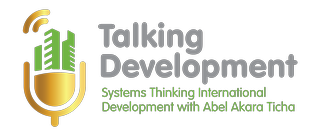
By Abel Akara Ticha
Is “Journalism under digital siege”? Well, UNESCO says yes! The organisation chose that as the theme of this year’s World Press Freedom Day (WPFD) on 3 May, to call on Governments and other powerful actors to refrain from using big data collection tools and artificial intelligence to track journalists, curtail their freedom to operate and invade their privacy. UNESCO is also pondering with partners how media for which journalists work can increase their viability or safeguard their existence in a space where internet and social media giants, use content generated by professional journalists to promote ads without necessarily sharing the booty with news media companies.
Towards freedom from spying and tracking

One of the ways in which the powerful (Governments and owners of capital) can control journalists, is through malware and spyware. The question as to whether the all-pervasive cookies we now deal with when we visit most websites also constitute spyware, has been answered with an overwhelming response from ‘geeks’ that they are not. The geeks have defined them as simple text files that record a netizen’s browser behaviour in order to improve site functionality and make their experience better through saving visit history, purchase history, login and other information.
So, what about third party cookies (those used by other sites unbeknown to the visitor of a primary site)? Why do first party sites integrate them on their sites in the first place? The answer may not simply be to unrelentingly show you adverts, hence commodifying you the netizen to information-for-profit mining third parties. If third party cookies were that benign, browsers such as Chrome would not have provided users with the option to block them completely in their setting. So as a news media practitioner using the internet to research for your next story, it is possible that the people in power who hate or fear your guts, may be ‘cookying’ [my coinage] you up as a third party if they don’t have a way to physically plant a tracker or spyware on you, your space or your gadget.
From a self-flagellating angle, it must be stated that news media themselves are increasingly using cookies sometimes without any real choice to their sites’ visitors but the option to ‘accept all’ or get kicked out. To be fair to everyone, it is desirable for governments to institute cookie regulations as is the case with the European Union’s General Data Protection Regulation (GDPR) or data consent rules set by some American states such as California and Virginia. If you are a powerful establishment running a site with a cookie wall (a site which simply limits visitors to the display: “browsing through or using this site means you consent to our cookie policy”), then you’ve got a motive. If your platform pre-checks cookie options (except for “strictly functional” ones, which you should define anyway), it’s stratagem. If you present the site visitor with a gobbledygook list of options that no one except graduates from coding schools have the time to read through and understand before accessing your page, well that’s a fetter.
My project here is to advocate that news professionals be careful not to replay the digital siege laid against them, on their audiences. This is important to win the public’s support to compellingly fight the former siege. For journalists, this is high time they fully engaged in exposing all digital gimmicks that the powerful use to muzzle them from fairly representing the political economy to today’s somewhat ‘disinformation’ society.
Towards Media viability in the network society

UNESCO’s choice of “Journalism under digital siege” as the reflection point of WPFD 2022 is also a recognition of the threat to the viability of the professional (especially news) media by internet tech giants. Companies wielding power over the online advertising ecosystem (using AdTech) thanks to their search engine and social media platforms, enormously benefit from the hard work of journalists and other media practitioners to curate or represent content that has been professionally gathered, mediated and post-produced. Twitter, for instance, is one of those platforms with a high pull for news searchers. Elon Musk’s bid to take over the company after already selling $8.5billion of his Tesla shares and courting banks and private equity investors to join in the $44 billion fray, tells it all. A Pew Research Center poll in 2021 revealed that of the 23% of Americans regularly on twitter, almost 70% of them get news on the platform. Pew Research Center also revealed that 65% of adult Americans get news through search engines such as Google.
UNESCO thinks not much of the ad revenues generated in the digital space, partly thanks to the work of journalists, goes to people in the profession. Is the time not right, therefore, for news media practitioners to build synergy to digitally copyright news media content and use AI to harvest part of the proceeds of advertising that is anchored on their sweat? This might be a place to re-award unto journalism what belongs to journalism and render it with the tools to break from the digital siege, in spite of the ubiquity of internet and social media giants and the menace from established powers.


A motivating discussion is definitely worth comment. Theres no doubt that that you should write more on this issue, it may not be a taboo subject but usually folks dont talk about these subjects. To the next! Kind regards!!